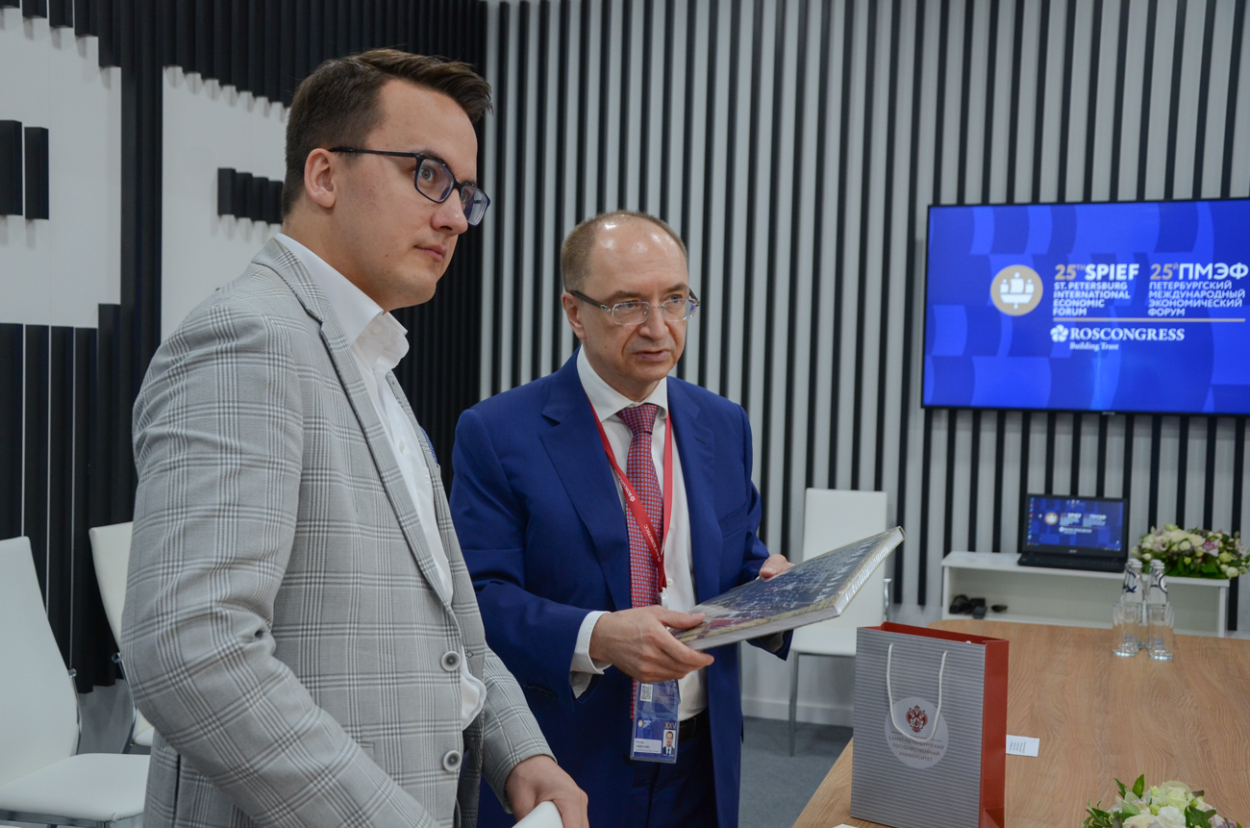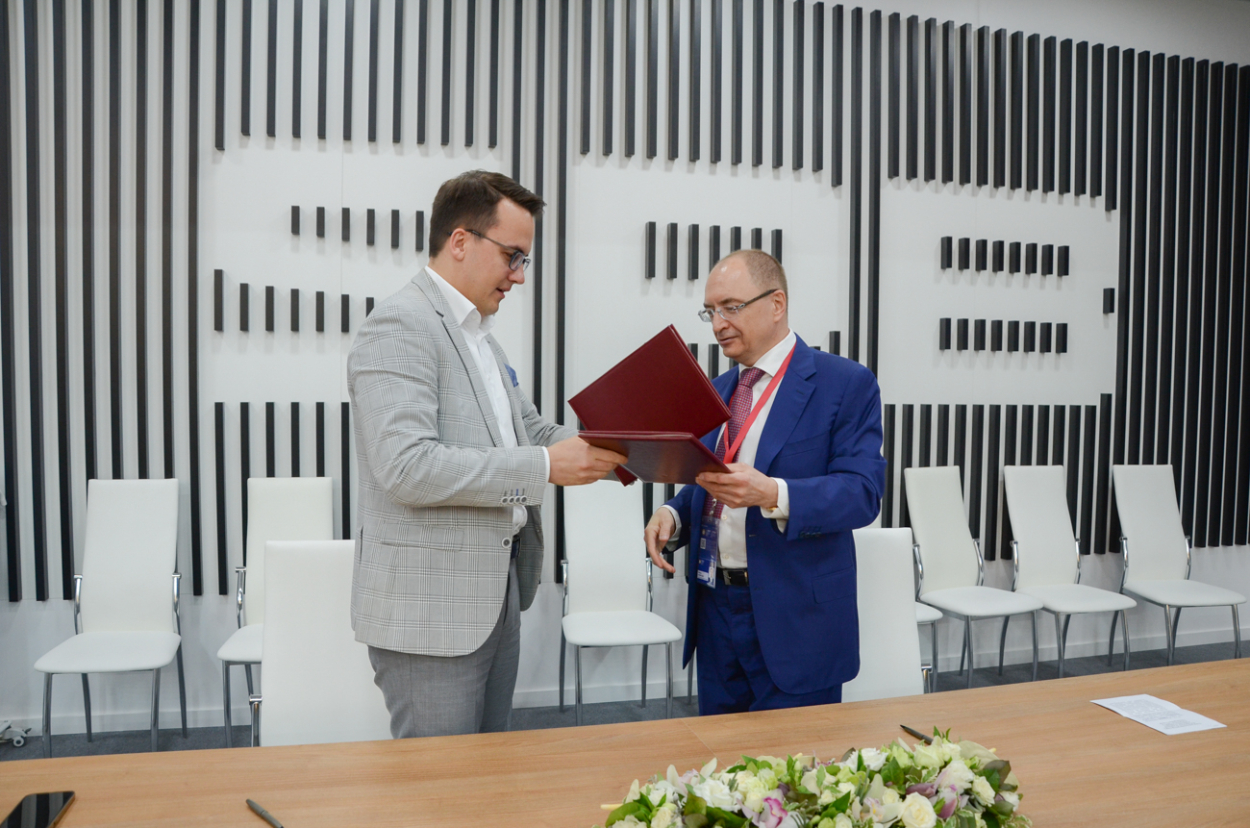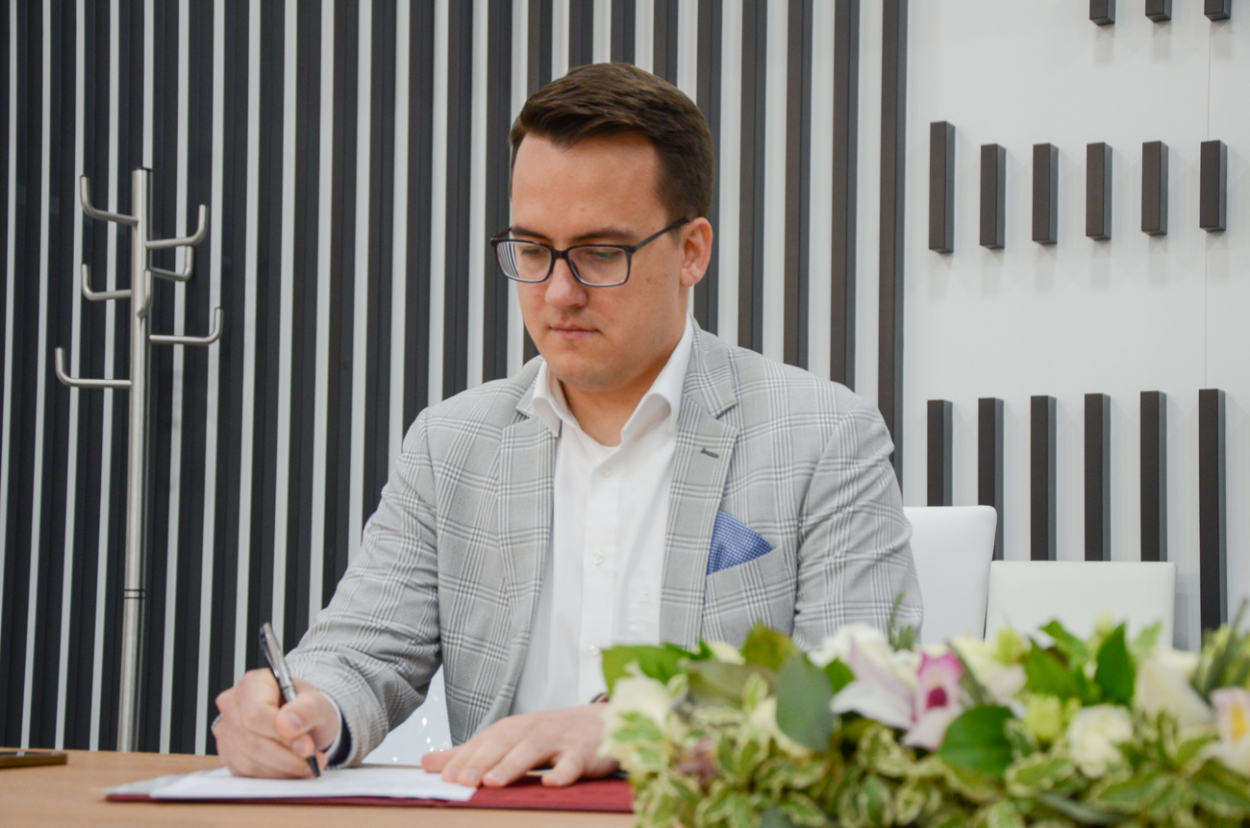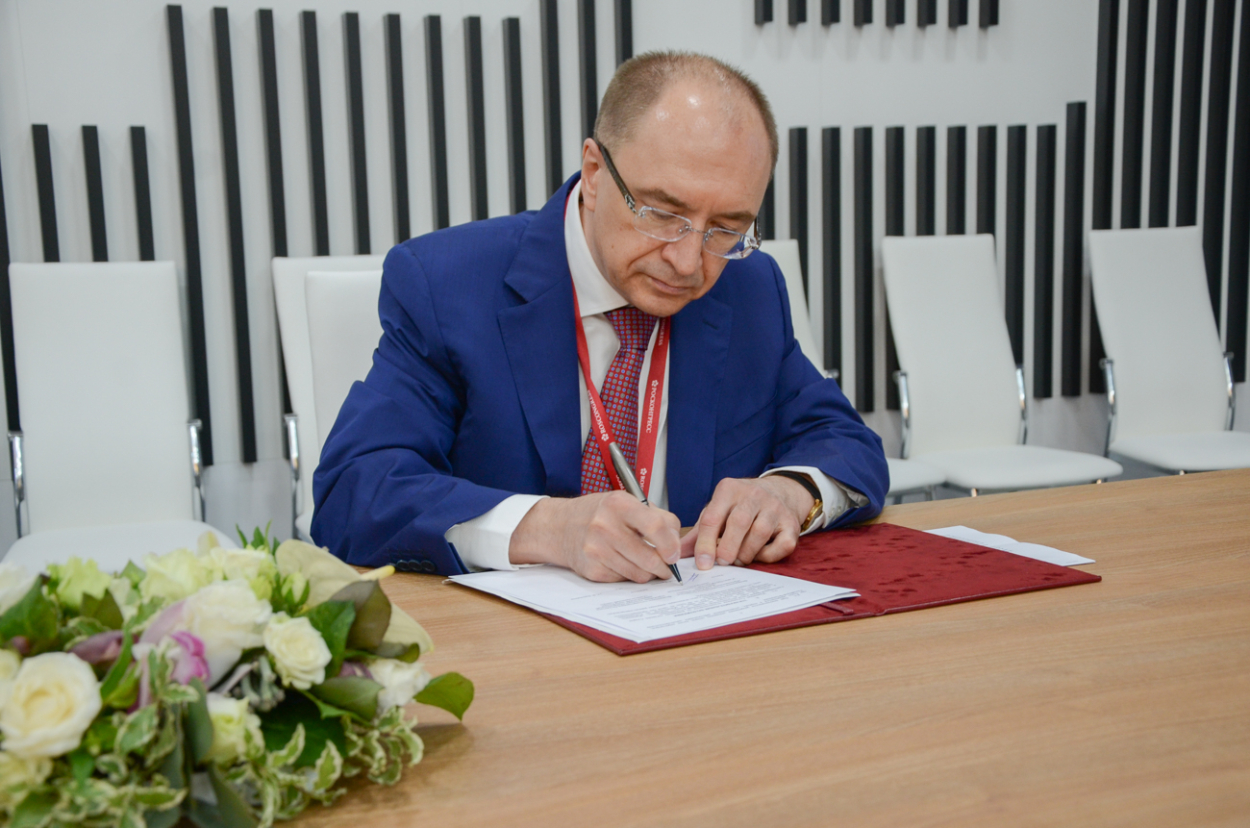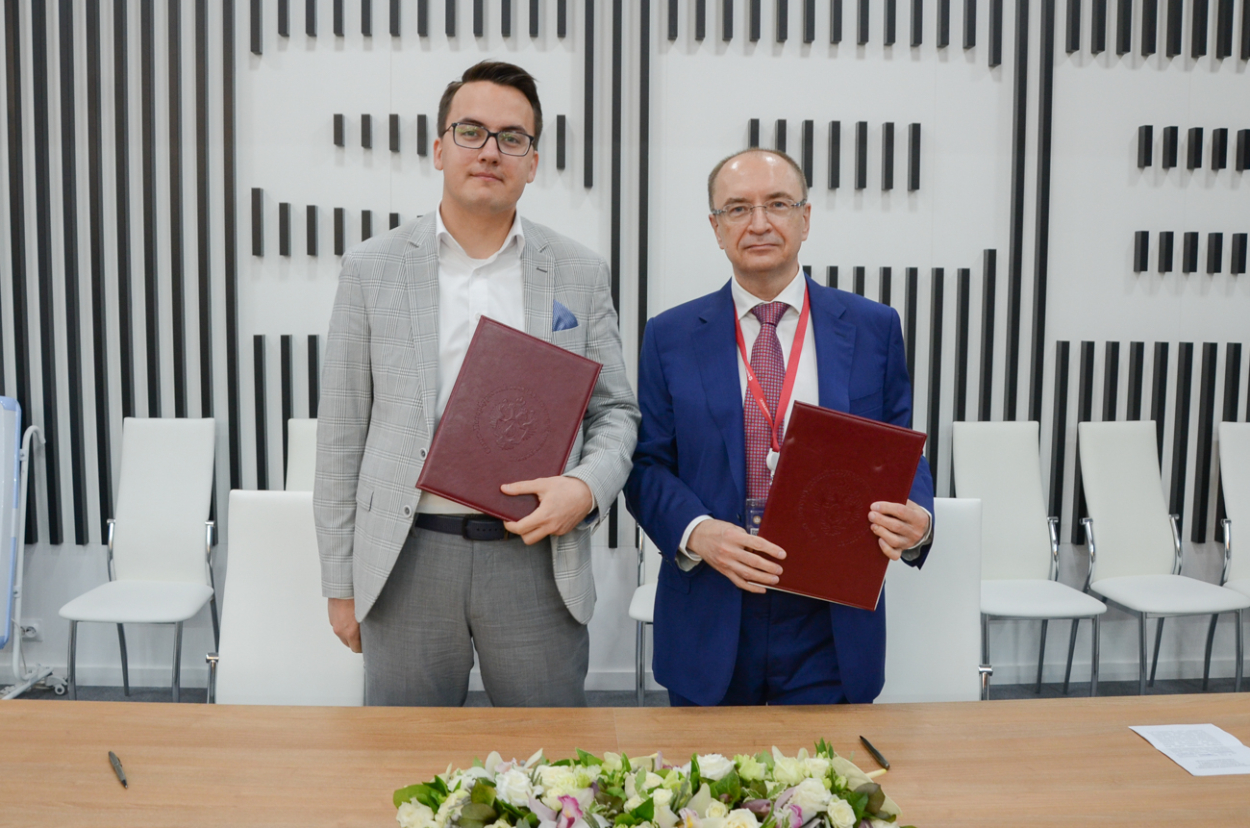St Petersburg University in tandem with the Alexandrinsky Theatre to launch academic programme for managers of creative industries
St Petersburg University has entered into an agreement with the Alexandrinsky Theatre on the margins of the St Petersburg International Economic Forum. The document was signed by: Nikolay Kropachev, Rector of St Petersburg University and Corresponding Member of the Russian Academy of Sciences; and Sergei Emelianov, Director of the Alexandrinsky Theatre.
The main avenues of cooperation will be the introduction of academic programmes in art management and joint creative projects, including awareness building events, exhibitions, crash courses, conferences, seminars and master classes with figures from the worlds of culture, the arts, scholarship and education — the aim of which is to develop a national school of theatre.
The Alexandrinsky Theatre is the oldest national theatre in Russia. St Petersburg University is the oldest university in the country, and it also has a national status, established by federal law. What unites us is that we are national assets of Russia.
Nikolay Kropachev, Rector of St Petersburg University
‘I am confident that the agreement we signed today will help to establish our collaboration and that the unique resources of the University in the field of digitisation, the development of academic programmes, and also legal and historical expertise will contribute to the development of the creative industry of the whole country,’ said Mr Kropachev.
At the initiative of the Alexandrinsky Theatre and St Petersburg University, a panel discussion entitled "Intangible Cultural Heritage of Russia: Economic Context" was also held as part of the St Petersburg International Economic Forum. The leaders of the academic, cultural and creative communities of Russia discussed what the intangible cultural heritage of the country is today and how its preservation can be translated into the language of economics.
The Alexandrinsky Theatre, as one of the leading institutions in the field of culture and the arts, is at the forefront of national and international projects whose key goal is the consolidation of the communities who are interested in the preservation and popularisation of our country’s cultural heritage.
Sergei Emelianov, Director of the Alexandrinsky Theatre
‘Thus, in 2022, in cooperation with the leaders in the field of the humanities, we have launched a number of creative outreach initiatives, such as the educational project "The National Theatre School" and the multimedia project "A Theatrical Map of Russia". The biggest event will be the first Congress of National Theatres of Russia, which will be held from 22 to 26 June in Yakutsk, with the support of the government of Yakutia,’ said the moderator of the panel discussion, Mr Emelianov.
Anastasia Yarmosh, Vice-Rector for Strategic Development and Partnership at St Petersburg University, participated in the discussion. She pointed out that working on the topic of our intangible cultural heritage, which includes the languages of different ethnic groups, folklore, oral traditions and the theatrical repertoire, is a rather risky investment project, from which it will not be very easy to form a new niche in the creative industry that will be as commercially viable as others, such as animated graphics, website design and cinematography.
One of the reasons for this, according to her, is that there are few qualified theatre managers. To address this problem, a unique academic programme has been developed. It is based on the competencies of, on the one hand, the leading national theatre and, on the other hand, the flagship business school in Russia, St Petersburg University’s Graduate School of Management.
‘The programme that we have launched in partnership with the Alexandrinsky Theatre is unique in our country. Even today, members of the industry worldwide are watching to see how it will work out,’ said Anastasia Yarmosh. ‘Russia is a huge multinational state, and if we are able to launch this project, both in the pilot republics and in the whole of Russia, it will set a world precedent.’
Ms Yarmosh stressed that this will be dynamic, intense and fully project-oriented learning. Further down the line, St Petersburg University plans to create a pool of educational opportunities in order to train managers for the creative economy. This will also include online courses in the languages of small-numbered peoples, master’s programmes, and other contemporary educational formats.
Such an approach, she noted, will make it possible to develop and carry on a cultural tradition whose representative resides in any corner of the Earth and who needs to provide their children and future generations with their cultural roots and traditions.
‘We hope that, in the foreseeable future, we will receive feedback from the first students in this programme. This will make it possible for us to systematically turn things around, because the potential of this non-trivial facet of the creative industries is enormous, and the attention of the world community is riveted on it,’ said Ms Yarmosh. ‘Language is thinking, it has no boundaries, and peoples’ linguistic traditions lie outside any political or geopolitical contexts. We are soaring off into realms that will leave an important legacy for world culture as a whole.’


